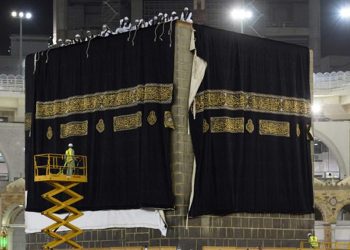Indian law enforcement agencies are currently investigating alleged connections between numerous colleges in Canada and two entities in Mumbai accused of illegally trafficking students across the Canada-U.S. border.
The Enforcement Directorate (ED), which is investigating this case, has revealed troubling evidence of human trafficking and money laundering in connection with these activities.
According to the ED’s statement released on Tuesday, the investigation was launched after the tragic death of the Patel family in January 2022. The family, originally from Gujarat, froze to death while attempting to cross the Canada-U.S. border illegally. The case, known as the “Dingucha case,” prompted Indian authorities to investigate the network allegedly responsible for the family’s ill-fated journey.

Indian family Jagdish Baldevbhai Patel, Dharmik Jagdishkumar Patel, Vaishaliben Jagdishkumar Patel and Vihangi Jagdishkumar Patel, left to right, shown in an undated photo, froze to death in Manitoba in 2022 while trying to cross the Canada-U.S. border into Minnesota. (Amritbhai Vakil/The Canadian Press)
The probe has uncovered a significant and troubling network involving both Indian agents and Canadian colleges. The ED alleges that individuals, including students, were promised admission into Canadian colleges. However, once these individuals arrived in Canada, they did not attend the colleges but instead illegally crossed into the U.S. In many cases, the fees paid for their college admissions were later refunded to them.
The ED’s investigation has pointed to the involvement of over 250 colleges in Canada, with a large number of these institutions allegedly cooperating with two entities in India. These colleges, most of which are located near the Canada-U.S. border, helped facilitate this illegal immigration process, though the names of the specific colleges involved have not been disclosed yet.
While the total number of implicated colleges is reported to be over 250, the Enforcement Directorate has yet to reveal the names of the institutions under investigation. It is understood that the involved colleges had entered into agreements with Indian agents to refer students, charging them between Rs 55 lakh and Rs 60 lakh per person for the entire process.
These students were allegedly part of a wider network, with about 25,000 students being referred by one entity and another 10,000 students by another entity to various colleges annually. Investigations suggest that approximately 1,700 agents in Gujarat and around 3,500 agents across India were part of the operation, with about 800 agents actively involved in the trafficking activities.
The ED’s recent search operations in cities like Mumbai, Nagpur, Gandhinagar, and Vadodara revealed further details about the scale of this illegal operation. Authorities suspect that some of the implicated Canadian colleges, located near the border, may have knowingly participated in the human trafficking scheme.
As the investigation continues, the Indian authorities have urged people planning to study abroad to follow legal and transparent channels to avoid falling victim to such illegal operations.
This case also comes amid rising tensions between Canada and India over border security, international student policies, and other diplomatic issues.

































